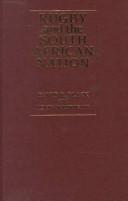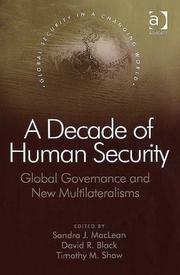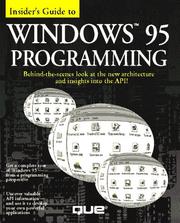| Listing 1 - 10 of 11 | << page >> |
Sort by
|
Book
ISBN: 9781771120616 1771120614 9781771120623 1771120622 9781771120609 1771120606 Year: 2015 Publisher: Waterloo, Ontario
Abstract | Keywords | Export | Availability | Bookmark
 Loading...
Loading...Choose an application
- Reference Manager
- EndNote
- RefWorks (Direct export to RefWorks)
Canada's engagement with post-independence Africa presents a puzzle. Although Canada is recognized for its activism where Africa is concerned, critics have long noted the contradictions that underlie Canadian involvement. Focusing on the period following 2000, and by juxtaposing Jean Chrétien's G8 activism with the Harper government's retreat from continental engagement, David R. Black's Canada and Africa in the New Millennium illustrates a history of consistent inconsistency in Canada's relationship with Africa. Black combines three interpretive frames to account for this record: the tradition of "good international citizenship"; Canada's role as a benign face of Western hegemonic interests in Africa; and Africa's role as the basis for a longstanding narrative concerning Canada's ethical mission in the world. To examine Africa's place in Canada's foreign policy-and Canada's place in Africa-Black focuses on G8 diplomacy, foreign aid, security assistance through peace operations and training, and the increasingly controversial impact of Canadian extractive companies. Offering an integrated account of Canada's role in sub-Saharan Africa, Black provides a way of understanding the nature and resilience of recent shifts in Canadian policy. He underscores how Africa-though marginal to Canadian interests as traditionally conceived-has served as an important marker of Canada's international role.
Canada --- Africa --- Eastern Hemisphere --- Canada (Province) --- Canadae --- Ceanada --- Chanada --- Chanadey --- Dominio del Canadá --- Dominion of Canada --- Jianada --- Kʻaenada --- Kanada (Dominion) --- Ḳanadah --- Kanadaja --- Kanadas --- Ḳanade --- Kanado --- Kanakā --- Province of Canada --- Republica de Canadá --- Yn Chanadey --- Καναδάς --- Канада --- קאנאדע --- קנדה --- كندا --- کانادا --- カナダ --- 加拿大 --- 캐나다 --- Lower Canada --- Upper Canada --- Foreign relations --- Politics and government --- Kaineḍā --- Africa and the West. --- CIDA. --- Canadian mining companies. --- DFAIT. --- EDC. --- Lloyd Axworthy. --- NEPAD. --- corporate social responsibility. --- development assistance. --- hegemony. --- human security. --- moral identity. --- multilateralism. --- non-governmental development organizations. --- norm entrepreneurship. --- peacekeeping. --- the Africa Action Plan. --- the Canadian Forces. --- the Commonwealth.

ISBN: 0719049326 Year: 1998 Publisher: Manchester Manchester University Press
Abstract | Keywords | Export | Availability | Bookmark
 Loading...
Loading...Choose an application
- Reference Manager
- EndNote
- RefWorks (Direct export to RefWorks)
Book
ISBN: 9780415559027 9780415559034 9780203862179 9781135190095 9781135190132 9781135190149 Year: 2010 Publisher: London Routledge
Abstract | Keywords | Export | Availability | Bookmark
 Loading...
Loading...Choose an application
- Reference Manager
- EndNote
- RefWorks (Direct export to RefWorks)
Atrocities --- Ethnic conflict --- Genocide --- International relations --- World politics --- Political aspects --- Sudan --- Darfur (Sudan) --- History --- Politics and government --- Foreign relations --- Ethnic relations --- Political aspects. --- Darfur --- PolemologyDarfur --- International relations. Foreign policy --- Polemology --- Cleansing, Ethnic --- Ethnic cleansing --- Ethnic purification --- Ethnocide --- Purification, Ethnic --- Crime --- Conflict, Ethnic --- Ethnic violence --- Inter-ethnic conflict --- Interethnic conflict --- Social conflict --- Military atrocities --- Cruelty --- War crimes --- Sudan, Egyptian --- Anglo-Egyptian Sudan --- Anglo-Egipetskiĭ Sudan --- Egyptian Sudan --- Democratic Republic of the Sudan --- Republic of the Sudan --- Jumhūrīyat al-Sūdān al-Dīmuqrāṭīyah --- Soudan --- Demokraticheskai︠a︡ Respublika Sudan --- Sudan (Democratic Republic) --- Jamhuryat es-Sudan --- Republic of Sudan --- Jumhūriyyat as-Sūdān --- Lado Enclave (Congo Free State) --- Dār Fūr (Sudan) --- دارفور --- دارفور (السودان) --- Darfour (Sudan) --- Atrocities. --- Jumhuriyat as-Sudan --- As-Sudan
Book
ISBN: 9780415962360 Year: 2009 Publisher: New York (N.Y.) Routledge
Abstract | Keywords | Export | Availability | Bookmark
 Loading...
Loading...Choose an application
- Reference Manager
- EndNote
- RefWorks (Direct export to RefWorks)

ISBN: 9780754647737 0754647730 9781315564630 9781317188421 9781317188438 Year: 2006 Publisher: Aldershot Ashgate
Abstract | Keywords | Export | Availability | Bookmark
 Loading...
Loading...Choose an application
- Reference Manager
- EndNote
- RefWorks (Direct export to RefWorks)
Security, International. --- Economic security. --- International cooperation. --- World politics. --- Sécurité internationale --- Sécurité économique --- Coopération internationale --- Politique mondiale --- Sécurité internationale --- Sécurité économique --- Coopération internationale --- Economic security --- International cooperation --- Security, International --- World politics --- Colonialism --- Global politics --- International politics --- Political history --- Political science --- World history --- Eastern question --- Geopolitics --- International organization --- International relations --- Collective security --- International security --- Disarmament --- Peace --- Cooperation, International --- Global governance --- Institutions, International --- Interdependence of nations --- International institutions --- World order --- Cooperation --- Security, Economic --- Economic policy --- Social policy --- Welfare economics
Book
ISBN: 0776623656 0776623648 Year: 2016 Publisher: University of Ottawa Press / Les Presses de l’Université d’Ottawa
Abstract | Keywords | Export | Availability | Bookmark
 Loading...
Loading...Choose an application
- Reference Manager
- EndNote
- RefWorks (Direct export to RefWorks)
In 2013, the government abolished the Canadian International Development Agency (CIDA), which had been Canada's flagship foreign aid agency for decades, and transferred its functions to the newly renamed Department of Foreign Affairs, Trade and Development (DFATD). As the government is rethinking Canadian aid and its relationship with other foreign policy and commercial objectives, the time is ripe to rethink Canadian aid more broadly. Edited by Stephen Brown, Molly den Heyer and David R. Black, this revised edition not only analyzes Canada's past development assistance, it also highlights important new opportunities in the context of the recent change in government. Designed to reach a variety of audiences, contributions by twenty scholars and experts in the field offer an incisive examination of Canada's record and initiatives in Canadian foreign aid, including its relatively recent emphasis on maternal and child health and on the extractive sector, as well as the longer-term engagement with state fragility. The portrait that emerges is a sobering one. This book is essential reading for anyone interested in Canada's changing role in the world.
Economic assistance, Canadian. --- Canada --- Foreign economic relations. --- Economic policy. --- Canadian economic assistance --- foreign aid --- canada --- Canadian International Development Agency --- Development aid --- Gender equality --- Official development assistance
Book
ISBN: 0776622110 1336097396 0776621734 0776626124 0776621742 Year: 2015 Publisher: Les Presses de l’Université d’Ottawa | University of Ottawa Press
Abstract | Keywords | Export | Availability | Bookmark
 Loading...
Loading...Choose an application
- Reference Manager
- EndNote
- RefWorks (Direct export to RefWorks)
This book contributes to a "rethinking" of Canadian aid on four levels. First, by undertaking a collective rethink of the foundations of Canadian aid. Second, through an analysis of how the Canadian government is rethinking Canadian aid, with a greater focus on the Americas as well as specific countries and themes (such as mothers, children and youth, and fragile states); increased involvement of the private sector (particularly Canadian mining companies); and greater emphasis on self-interest. Third, by rethinking where Canadian aid is or should be heading, with recommendations for improved. In 2013, the government abolished the Canadian International Development Agency (CIDA), which had been Canada's flagship foreign aid agency for decades, and transferred its functions to the newly renamed Department of Foreign Affairs, Trade and Development (DFATD). As the government is rethinking Canadian aid and its relationship with other foreign policy and commercial objectives, the time is ripe to rethink Canadian aid more broadly. Edited by Stephen Brown, Molly den Heyer and David R. Black, this revised edition not only analyzes Canada's past development assistance, it also highlights important new opportunities in the context of the recent change in government. Designed to reach a variety of audiences, contributions by twenty scholars and experts in the field offer an incisive examination of Canada's record and initiatives in Canadian foreign aid, including its relatively recent emphasis on maternal and child health and on the extractive sector, as well as the longer-term engagement with state fragility. The portrait that emerges is a sobering one. This book is essential reading for anyone interested in Canada's changing role in the world.
Economic assistance, Canadian. --- Canadian economic assistance --- Canada --- Economic policy. --- Foreign economic relations. --- help --- politics --- government --- international relation --- assistance

ISBN: 1565296796 Year: 1995 Publisher: Indianapolis (Ind.) Que
Abstract | Keywords | Export | Availability | Bookmark
 Loading...
Loading...Choose an application
- Reference Manager
- EndNote
- RefWorks (Direct export to RefWorks)
Book
Year: 2016 Publisher: University of Ottawa Press : Ottawa,
Abstract | Keywords | Export | Availability | Bookmark
 Loading...
Loading...Choose an application
- Reference Manager
- EndNote
- RefWorks (Direct export to RefWorks)
In 2013, the government abolished the Canadian International Development Agency (CIDA), which had been Canada's flagship foreign aid agency for decades, and transferred its functions to the newly renamed Department of Foreign Affairs, Trade and Development (DFATD). As the government is rethinking Canadian aid and its relationship with other foreign policy and commercial objectives, the time is ripe to rethink Canadian aid more broadly. Edited by Stephen Brown, Molly den Heyer and David R. Black, this revised edition not only analyzes Canada's past development assistance, it also highlights important new opportunities in the context of the recent change in government. Designed to reach a variety of audiences, contributions by twenty scholars and experts in the field offer an incisive examination of Canada's record and initiatives in Canadian foreign aid, including its relatively recent emphasis on maternal and child health and on the extractive sector, as well as the longer-term engagement with state fragility. The portrait that emerges is a sobering one. This book is essential reading for anyone interested in Canada's changing role in the world.
Book
Year: 2016 Publisher: University of Ottawa Press : Ottawa,
Abstract | Keywords | Export | Availability | Bookmark
 Loading...
Loading...Choose an application
- Reference Manager
- EndNote
- RefWorks (Direct export to RefWorks)
In 2013, the government abolished the Canadian International Development Agency (CIDA), which had been Canada's flagship foreign aid agency for decades, and transferred its functions to the newly renamed Department of Foreign Affairs, Trade and Development (DFATD). As the government is rethinking Canadian aid and its relationship with other foreign policy and commercial objectives, the time is ripe to rethink Canadian aid more broadly. Edited by Stephen Brown, Molly den Heyer and David R. Black, this revised edition not only analyzes Canada's past development assistance, it also highlights important new opportunities in the context of the recent change in government. Designed to reach a variety of audiences, contributions by twenty scholars and experts in the field offer an incisive examination of Canada's record and initiatives in Canadian foreign aid, including its relatively recent emphasis on maternal and child health and on the extractive sector, as well as the longer-term engagement with state fragility. The portrait that emerges is a sobering one. This book is essential reading for anyone interested in Canada's changing role in the world.
| Listing 1 - 10 of 11 | << page >> |
Sort by
|

 Search
Search Feedback
Feedback About UniCat
About UniCat  Help
Help News
News